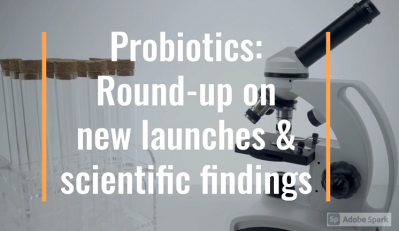Prebiotics and blood pressure: Australian researchers recruiting for clinical trial of hypertensive subjects

The study is being conducted by researchers from Alfred Hospital, Monash University, University of Tasmanian and Baker Heart and Diabetes Institute.
Subjects will be given two different diets consisting of modified resistant starch (high amylose maize starch) or a placebo (corn starch or regular flour), for three weeks each, with a three-week washout period between the two diets.
The phase IIa double-blinded, randomised, cross-over, placebo controlled trial aims to study if modified resistant starch can modulate gut microbiota and reduce blood pressure in hypertensive subjects, potentially as a treatment for hypertension.
Resistant starch is a type of prebiotic fibre which resist digestion in the upper gastrointestinal tract and pass undigested to the large intestine, where they are fermented by colon bacteria to produce short-chain fatty acids (SCFAs) such as acetate, propionate, and butyrate.
Previous preclinical studies have shown prebiotic fibre as well as SCFAs (sometimes called postbiotics) can reduce blood pressure and prevent the development of hypertension.
“These studies suggest that the use of prebiotic resistant starches and SCFAs may lower blood pressure, but translational evidence in humans are lacking,” researchers wrote in the Trials journal.
High amylose maize starch, which is made up of about 50% resistant starch, and is used in breads and cereals in Australia and can also be purchased as a standalone supplement
“There is a case for a diet high in High amylose maize starch and, therefore, resistant starch or prebiotic fibre to exert positive health effects to individuals and of interest, those with hypertension.”
Subject profile
The study has been recruiting subjects since July 2019, and aim to complete by October 2021.
“Due to the SARS-COV-2 pandemic, we were forced to stop the trial several times, which has caused several delays in recruitment.”
It aims to recruit 38 participants to allow for a 20% drop out rate. As of now, there are 17 participants and one dropout.
Recruitment is done through advertisements placed around the Alfred Hospital (Melbourne, Australia) precinct, public places and social media platforms.
Subject profiles with males and females with untreated hypertension (blood pressure ≥ 140/90 mmHg).
Participants are also required to have a BMI of 18.5 to 35 kg/m2, due to the association between weight and the gut microbiota.
Those on anti-hypertensive medication, blood pressure ≥ 165/100 mmHg, using probiotics, diabetes, pregnancy, gastrointestinal diseases, vegetarian or with coeliac disease were excluded.
Study design
Participants are randomly allocated to receive either a diet containing 40 g/day of modified resistant starch or placebo (corn starch or regular flour).
The study period is nine weeks: three weeks on either diet, with a three-week washout period in between.
The purpose of the washout period is to allow the gut microbiota and levels of acetate and butyrate to return to baseline.
Participants will be provided two meals daily and are instructed to eat their usual foods around the trial’s food.
Example of AM meals include lemon and poppyseed muffin, raspberry and white chocolate muffin. PM meals were tuna burger, frittata, beef burger, and arancini balls.
Participants will also be provided with a list of foods containing natural resistant starches and SCFAs to avoid during the study period such as green banana flour, waxy maize starch, kombucha, and vinegars.
They are required to complete a food diary for the study duration to document food intake.
Fasting blood samples will also be taken to analyse blood glucose, fasting lipids, blood electrolytes and liver enzyme tests to determine renal and liver function (including eGFR, creatinine, total protein, albumin, globulin, bilirubin, ALT, GGT, ALP).
Outcomes
Primary outcome is a decrease in systolic blood pressure, which was recorded daily at the same time under rested conditions.
Secondary outcomes are a decrease in arterial stiffness, circulating cytokines, immune markers, change in SCFAs (plasma, faecal) as well as modulation to the gut microbiome.
The findings are expected at the end of 2021.
Researchers said the results of this study will provide the first evidence for the use of a combination of prebiotics and postbiotics to lower blood pressure in humans.
“Dietary manipulation via prebiotics increases microbial diversity and SCFA production, which can infer benefits on the host,
“In regard to hypertension, novel dietary strategies, such as the one described in this trial, are essential, as the impact of cardiovascular disease on the individual and public health systems are immense.”
Prebiotic intake remain small
Earlier studies have found resistant starch intakes in Australia and the USA are low, at around three to nine grams per person per day.
There are currently no dietary recommendations regarding resistant starch intake, however experts have suggested intakes of 20g per day.
Source: Trials
https://doi.org/10.1186/s13063-021-05468-2
“Microbial Interventions to Control and Reduce Blood Pressure in Australia (MICRoBIA): rationale and design of a double-blinded randomised cross-over placebo controlled trial”
Authors: Dakota Rhys-Jones, et al.



















